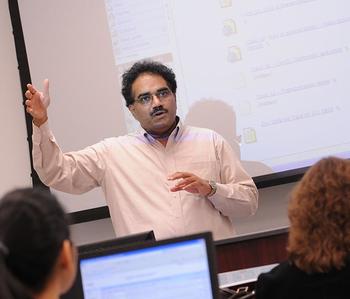“We are at the cusp of a new future, and we need to think about how we might do things differently. It is time to consider how to best use the current infrastructure systems and to rethink how to build them from now on.”
— Elise Miller-Hooks, Bill and Eleanor Hazel Chair in Infrastructure Engineering
Our researchers in transportation engineering develop mathematically-based decision support tools for designing, operating, managing, maintaining, and protecting the built environment.
Our Focus Area
Transportation Systems
This research focuses on developing the quantitative and computational tools necessary to assess the resilience of healthcare systems, school districts, university campuses, government functions, residential buildings, and business districts during natural disasters. The main question that the researchers address is: How resilient is the community function that takes place in buildings, given their underlying dependence on various interdependent infrastructure systems? The researchers hope their findings will help guide state and local officials in improving, building, and maintaining resilient communities in the future.

Professor Mohan Venigalla is an expert in quantitative methods for transportation planning, air quality, traffic operations, and traffic simulation.
Principal investigator: Elise Miller-Hooks
Air Quality
Researchers use quantitative methods for transportation planning, air quality, traffic operations, and traffic simulation using the techniques of transportation systems analysis encompassing travel demand modeling, traffic simulation, network analysis, and integrated transportation system (ITS) related modeling.
Principal investigator: Mohan Venigalia
Demand and Traveler Behavior
This research delves into how transportation users will respond to changing prices and congestion on urban highways and transit networks. By using statistical tools and regression/logit/probit modeling, the research team has created a technically sound tool to evaluate policy options for congestion reduction in cities. This practice-ready research can be used to address the increasingly overwhelming problems of traffic congestion in large cities, including Washington, D.C., and the megacities of the world.
Principal investigator: Shanjiang Zhu
